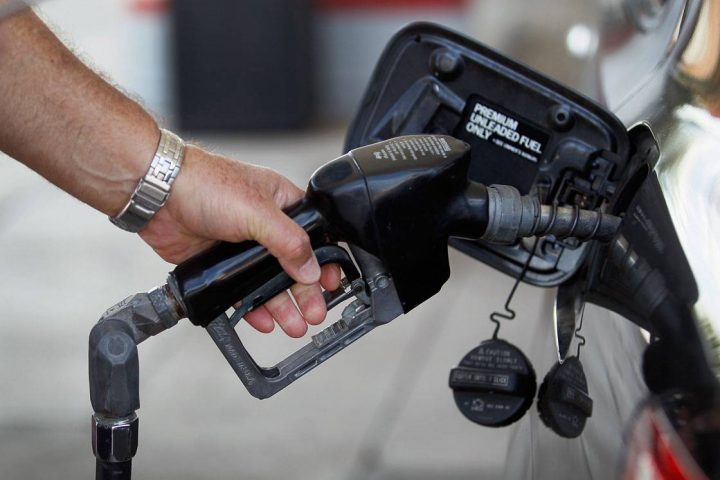The country’s annual inflation rate decelerated last month to 1.4 per cent in January in large part because of lower prices at the pump, Statistics Canada said Wednesday said in a new report.

Year-over-year growth in consumer prices slowed following the two per cent reading for December, the agency said in its latest consumer price index report. Economists on average had expected an increase of 1.5 per cent for January, according to Thomson Reuters Eikon.
READ MORE: Canadian inflation up in December as pricier airfares, vegetables offset cheaper gas
Across the country, Canadians paid 14.2 per cent less last month for gasoline compared with a year earlier, 9.2 per cent less for computer devices and 3.2 per cent less for traveller accommodation.
The report also said prices for fuel oil fell 3.3 per cent and natural gas dropped 2.3 per cent. Excluding gasoline, the agency said inflation was 2.1 per cent last month.
The weaker prices in categories like energy offset stronger growth in other areas. Year-over-year prices last month were 13.2 per cent higher for fresh vegetables, 7.8 per cent higher for mortgage interest costs and 5.3 per cent higher at restaurants.
WATCH: Interest rates expected to move higher ‘over time,’ Poloz says

The report also said the average of the Bank of Canada’s three core inflation readings, which omit more-volatile items like gas, held steady at 1.9 per cent in January for a third straight month. The Bank of Canada has been expecting inflation to edge down below its ideal two per cent target and to stay there throughout 2019, mostly because of lower gas prices.
The central bank, which aims to keep inflation between one and three per cent, can raise its benchmark interest rate as a way to keep inflation from climbing too high. The bank will make a policy decision next Wednesday and it’s widely expected to leave the interest rate unchanged at 1.75 per cent.
Last week, governor Stephen Poloz said the interest rate’s expected upward path to its likely destination range of between 2.5 and 3.5 per cent is “highly uncertain.” The bank, he said, is watching how several important uncertainties unfold.
READ MORE: Bank of Canada governor Poloz says pace of future rate hikes ‘highly uncertain’
Poloz highlighted the unknown evolution of the impacts of higher interest rates on heavily indebted Canadians, how housing markets adjust to higher borrowing costs and stricter mortgage guidelines, whether business investment picks up its pace and the uncertain global trade environment.



Comments